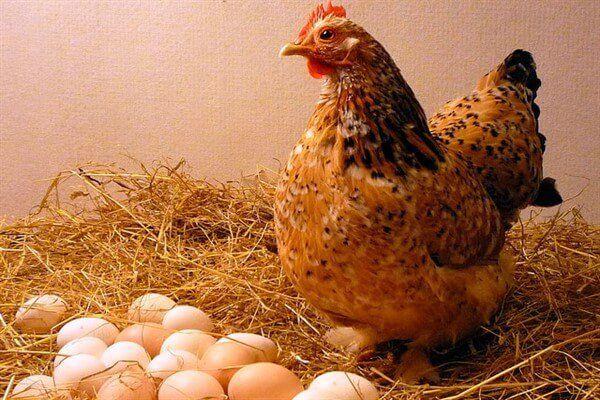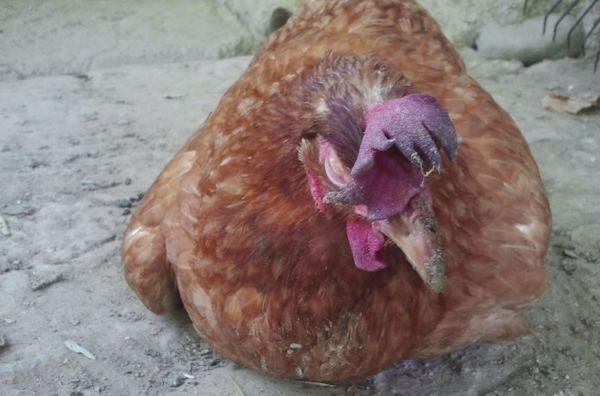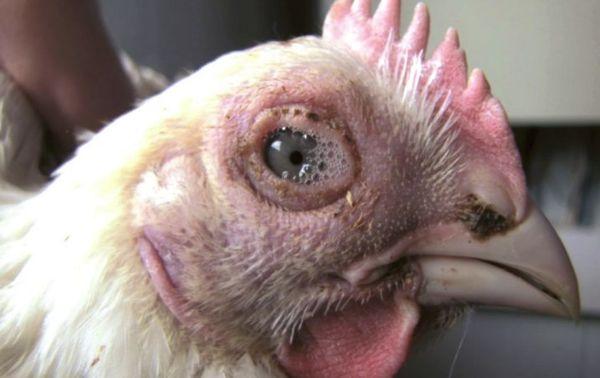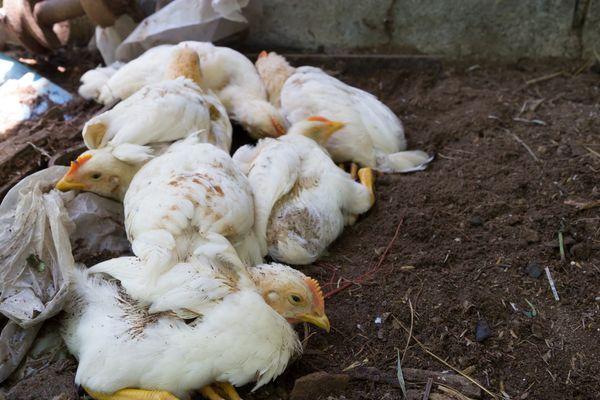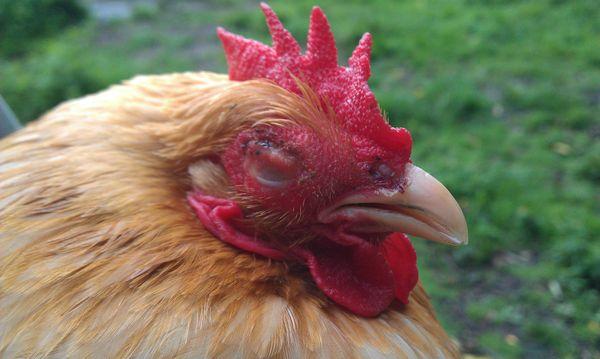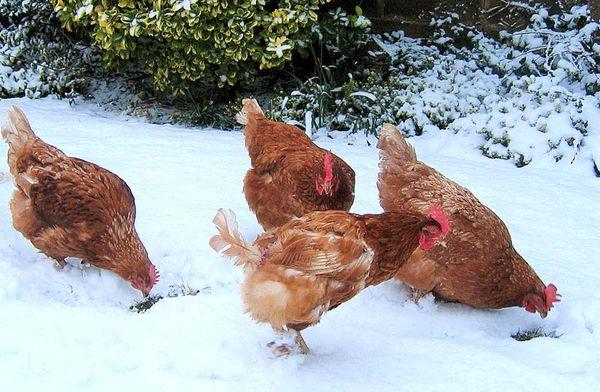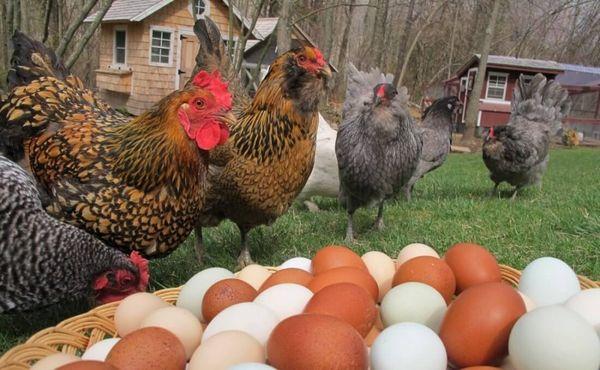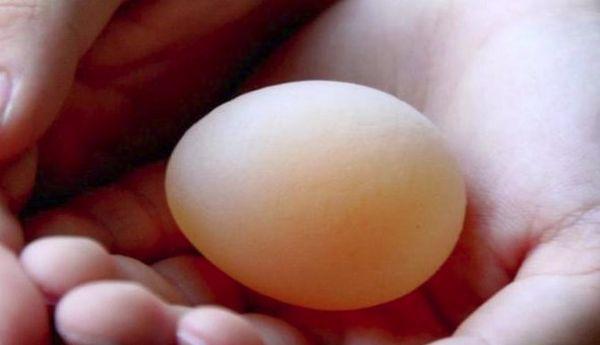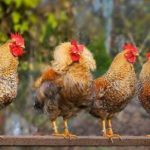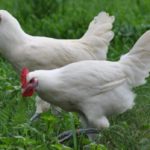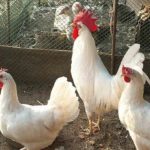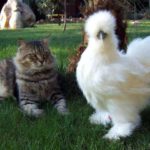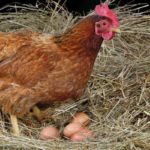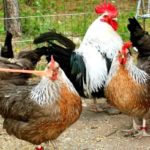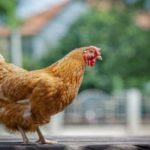People who keep poultry are interested in why chickens lay eggs with thin shells and what needs to be done to prevent the problem. The causes of the problem are factors that affect not only the quality of eggs, but also the health of laying hens.
- Chemical composition of the shell
- The main causes of thin-walled shells
- Incorrect content
- Diet
- Hormonal disorders
- Possible diseases
- Infectious bronchitis
- Newcastle disease
- Bird flu
- Mycoplasmosis
- Reduced egg production syndrome
- What to do if eggs have thin shells?
- Proper nutrition
- Summer period
- Winter period
- Premixes
- Mineral supplements
- Treatment for diseases
- Improving conditions of detention
- Prevention
Chemical composition of the shell
The composition (90%) of eggshells is calcium carbonate, which is responsible for the strength of the shell and is produced by the bird during incubation of eggs. The shell of a chicken egg contains up to 27 useful components that are quickly absorbed by the human body.
The main causes of thin-walled shells
The reasons that provoke the appearance of thin shells on chicken eggs may depend not only on external factors, but also on poultry diseases.
Incorrect content
Chicken requires proper maintenance conditions. The place where the hen is kept must be dry and warm. The condition of the bird is also important; if the chicken is regularly exposed to stressful conditions, the shell may be thin or absent.
Diet
Improper nutrition not only negatively affects the health of laying hens, but can also provoke the appearance of defects in eggs. Insufficient amounts of essential micronutrients in the poultry diet most often result in thin skins that can rupture when exposed.
More often, a soft shell indicates deficiencies in the following substances:
- calcium;
- manganese;
- iodine;
- zinc;
- phosphorus.
Mistakes can be made in which excessive amounts of one substance are administered to chickens. Nutrition should be comprehensive, selected in accordance with the age of the bird.
Hormonal disorders
A disruption in the hormonal background of chickens can occur due to improper care or illness. The result of such disorders may be the absence of eggs or the presence of defects such as soft shells.
Possible diseases
Chickens can be exposed to diseases that not only affect the quality of eggs, but can also lead to the death of the bird.
Infectious bronchitis
The viral disease progresses rapidly in birds and infects healthy ones. A laying hen can become infected with the disease from another chicken. The virus can be transmitted through saliva and droppings. This virus is also often carried on household tools that are used to care for the chicken coop. The disease manifests itself with the following symptoms:
- drowsiness;
- wheezing;
- tearing eyes;
- hard breath.
The disease develops quickly and can infect chickens in a chicken coop within a week. Particles of infection can travel long distances and cause an epidemic among birds.
Important. Often this type of disease appears in chickens under 1 month of age.
Newcastle disease
The disease may also be called pseudoplague. The disease is viral and manifests itself with complex symptoms.
The disease is transmitted through the air from infected chickens, through eggs, bedding and feed, and can manifest itself with the following symptoms:
- the appearance of mucus from the beak;
- the bird constantly lowers its head down;
- the appearance of seizures;
- poultry stool is liquid and green;
- wing paralysis.
Only a veterinarian can determine the symptoms of the disease at the initial level after examining the bird.
Bird flu
The plague spreads quickly among chickens and in a short time can affect all birds, as well as humans upon contact. Laying hens become infected with the disease through feed, rodents and bedding.
The symptoms of the disease are as follows:
- lack of appetite;
- sneezing, weakness;
- soft shell on eggs;
- swelling of the ridge.
Eating contaminated eggs is prohibited.
Mycoplasmosis
The disease is an infectious type that affects the respiratory organs of birds. The disease is transmitted by airborne droplets during cold times of the day. Symptoms of the disease:
- the appearance of mucus on the beak;
- breathing problems;
- eyeballs become red;
- loose stool.
Chickens reduce their egg production; the eggs are small and have a soft skin.
Reduced egg production syndrome
This type of viral disease is a common problem in poultry. Manifested by weakness, lack of eggs. Chickens infected with the disease may lay brown eggs. More often they do not have a shell; the white and yolk are wrapped in a thin pink film, which is damaged quickly. Eggs are not eaten.
What to do if eggs have thin shells?
In order to strengthen the eggshell, the following measures must be taken.
Proper nutrition
If a soft shell is found on the eggs, you should add useful nutritional components to the chicken feed. You can feed chickens with useful substances depending on the period of the year.
Summer period
In summer, chickens need to add freshly cut greens to their diet, such as sainfoin and alfalfa, plantain, and dandelion. The bird's diet should also include chalk. Chickens should have free movement in the pen to independently replenish missing components. The pen must be regularly moved to new locations.
Winter period
In winter, chickens stay indoors, so the use of additional additives becomes necessary. In winter, it is necessary to add cottage cheese and crushed shells to the diet of laying hens.
Premixes
Special impurities that contain hormonal additives. The list of drugs includes the following:
- “Ryabushka” contains all the necessary vitamins and microelements, which not only preserve the strength of the shell, but also increase the health of the chicken.
- "Zdravur Laying" - contains all the necessary amino acids necessary for normal digestion of chicken.
Before using the premix, it is necessary to study the constituent components, since the preparations can be used for laying hens and meat breeds.
Mineral supplements
It is necessary to add foods to the chicken diet that contain minerals necessary for shell formation:
- shell;
- chalk;
- fish fat.
Special mineral complexes can be used, which are purchased in packages for feeding chickens.
Treatment for diseases
Depending on the type of disease, appropriate treatment methods must be used.
| Diseases | Treatment |
| Infectious bronchitis | To prevent disease, it is necessary to increase the amount of minerals in the body of chickens. For this, special containers with chalk and lime are placed. Fish oil is also added to chicken food. |
| Newcastle disease | The disease is complex, so infected people must be isolated from other chickens. Infected birds must be eliminated as the virus can persist in the bird's body, resulting in further infection |
| Bird flu | The disease has no cure |
| Mycoplasmosis | Birds need to be administered the antibiotic “Farmazin”, “Tilsolom” by drop method. |
| Reduced egg production syndrome | To prevent this type of disease, vaccination is carried out at 16 weeks. |
Important. Before starting treatment, you should consult a veterinarian. Often diseases in the initial stages have common symptoms.
Improving conditions of detention
In order for chickens to be less exposed to diseases, it is necessary to follow the rules of keeping:
- monitor proper nutrition;
- there should be light in the chicken coop;
- the chicken coop should be ventilated regularly;
- the chicken coop in which the birds live should be cleaned regularly, the bedding should be changed to fresh;
- the room is treated with lime to remove harmful microorganisms.
In winter, heaters are used, the chicken coop must be warm, otherwise the birds will get sick regularly.
Prevention
Timely preventive measures are necessary for proper care of chickens and will reduce poultry health problems. In order for the shells on eggs to remain strong, it is necessary:
- regularly give special mineral components to strengthen the shell;
- regularly let your chickens out for walks in the fresh air, regardless of the time of year;
- carry out all vaccinations in a timely manner in accordance with the age of the bird;
- at the first symptoms of the disease, it is necessary to separate the infected laying hen from the healthy ones;
- ensure that the litter is dry and clean;
- Change the water in the sippy cup regularly.
Following the rules of caring for chickens will preserve the integrity of the shell, making it durable.
Eggs contain essential elements for human health. The shell is useful, as it contains all the necessary minerals to strengthen human bones. The shell may be soft; in order to prevent such a problem, it is necessary to follow the rules for caring for laying hens.

